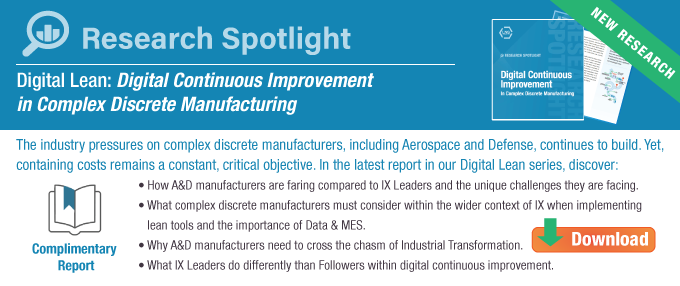In our last blog on Operational Excellence, we defined OE 4.0 as “sustainable value creation through a holistic approach, supported by an enabling execution platform.” We said that with OE 4.0, we shift away from safety, compliance, and Continuous Improvement (CI) to comprehensive risk management, moving beyond mere EHS & PSM compliance to a proactive, integrated operations system. Of course, we don’t leave CI behind as incremental progress is always welcome, but OE 4.0 seeks a permanent and continuing step-change in performance.
We described OE 4.0 with a number of characteristics, with three that we said are critical in moving from OE 3.0 to OE 4.0:
-
Managing the cross-functional workflows in the same manner as to how the work is actually done. This means integrating the pillars and silos of separate and usually departmentally driven software.
-
Measuring and managing human performance to sustain Operational Discipline (OD).
-
Addressing comprehensive risk management – who should be driving the bus?
In this blog and as a prelude to a forthcoming spotlight, we want to tackle No. 2 and focus on the importance of culture and managing human performance and their relation to operational discipline. We want to answer the question, "How do we effectively measure and manage human performance to sustain operational discipline?” And importantly, human performance is not just referring to the frontline workforce but also management and management systems.
What is Culture?
Organizational culture is the shared values and beliefs that characterize a company, guide its practices, and set the general attitude across its employees. With its deep emotional roots, culture has enormous influence over how its employees interact and conduct business transactions.
Corporate culture is often implied through vision, mission, and value statements but not consistently defined “on paper.” Instead, it develops organically from the cumulative traits of the company hires and the behaviors management tolerates. Yes, it tolerates and does not necessarily encourage. Culture is passed down through anecdotes and stories employees tell around the proverbial watercooler. Therefore, culture changes, but not suddenly, and not without deliberate effort.
Mindset is usually defined as the underlying, often unstated assumptions and belief systems individuals adopt to process and interpret incoming information. In other words, mindset acts as a filter on incoming information. Although the mindset is thought about at an individual level and may differ from person to person, it is heavily interrelated with an organization’s culture. It is the collection of individual mindsets that make up an organization’s culture. Therefore, the only way to change culture is to change employees’ individual mindsets to embrace the new, collective values.
We have all heard Peter Drucker’s famous quote, “Culture Eats Strategy for Breakfast.” So, the key question is, “If culture is potentially strong enough to derail the strategy of an organization, how can we ever expect a dramatic transformation to take hold? Is lack of focus on culture one of the contributors to the 70 percent failure rate (or even higher according to some consultancies) widely attributed to attempts at transformation?”
Why is this so important?
Because industry research shows that about 80% of incident causes are human-related. And incidents usually occur during upsets and transitions, in which good decision-making is critical to safe operations. Furthermore, a lack of operational discipline directly impacts efficient and effective operations, reflected both in costs and productivity.
These OD and management systems challenges aren’t new and have been studied for over 100 years. Frederick Taylor started it in 1909 when he published his landmark book, “Principles of Scientific Management.” This has since evolved to several cultural constructs used today, developed over the past 50 years. For example, Human and Organization Performance (HOP) is focused on the workforce, and Servant Leadership is focused on management.
Directions
LNS Research’s studies reveal that the constructs mentioned above share four elements in common, and all are on the path to Industrial Transformation (IX).

Culture is the key to Operational Discipline and hence Operational Excellence.
-
Values and principles underpin mindsets and behaviors, and to change culture, mindsets and behaviors have to change. Talking about change doesn’t do it. Walking the change does. This is where leaders, managers, and workers at all levels can shine.
-
Both management and the frontline workforce share the responsibility for cultural change. But unfortunately, finger-pointing and the blame game do not move the ball forward.
-
Management systems must also change to support OE 4.0. Unfortunately, today’s collection of disparate systems, be they software or management systems, won’t get you there.
The bottom line is that to affect behaviors to improve Operational Discipline, culture must change. Effecting cultural change is a major challenge that companies must tackle, not only for OD’s sake but also for sustainable operations. As today’s focus has shifted to Environmental, Social and Governance (ESG), the ability to operationalize Goal Zero and NetZero objectives are highly dependent on cultural change. These changes are part and parcel of Industrial Transformation where a “Vision-to-Value” shift or pivot is necessary to address workforce, management, and management systems. Our forthcoming spotlight will elaborate in more detail on how these cultural change concepts are related and help accelerate IX.
Stay with LNS Research as our future research delves deeper into Operational Excellence and the Future of Work.

All entries in this Industrial Transformation blog represent the opinions of the authors based on their industry experience and their view of the information collected using the methods described in our Research Integrity. All product and company names are trademarks™ or registered® trademarks of their respective holders. Use of them does not imply any affiliation with or endorsement by them.